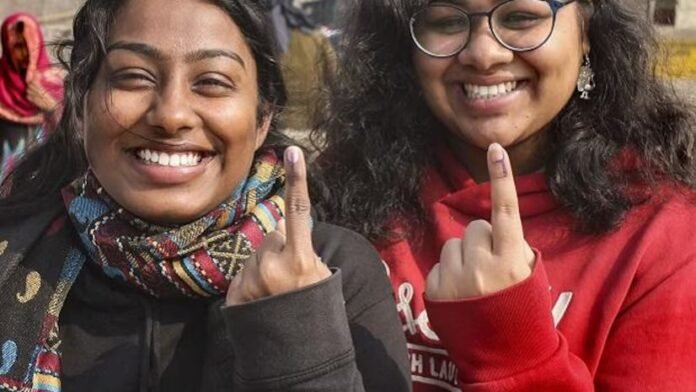BENGALURU: In a concerning disparity, recent data reveals that while women constitute almost 50% of the voting population in Karnataka, their representation in the state legislature stands at a mere 5%. This stark contrast highlights the significant underrepresentation of women in political decision-making bodies, raising questions about gender equality and inclusivity in the state.
The statistics, compiled from electoral records, shed light on the need for greater efforts to bridge the gender gap in Karnataka’s political landscape. Despite women actively participating in the electoral process and exercising their right to vote, their presence in the state legislature remains woefully low.
The reasons behind this significant disparity are multifaceted. Structural barriers, socio-cultural norms, and limited opportunities for women to enter the political arena are among the contributing factors. Deep-rooted gender biases and discrimination often hinder women from taking up leadership roles and pursuing political careers.
The underrepresentation of women in the state legislature not only denies them a voice in shaping policies and decision-making but also perpetuates gender disparities in various sectors. Women bring unique perspectives and experiences to the table, which are essential for holistic governance and inclusive development.
Recognizing the urgent need for change, various stakeholders, including civil society organizations and political groups, are advocating for measures to promote women’s participation in politics. Initiatives such as reservation of seats for women and raising awareness about the importance of female representation are being championed.
To address this gender gap effectively, it is crucial to create an enabling environment that supports and encourages women’s political aspirations. This includes providing access to resources, capacity-building programs, mentorship, and removing systemic barriers that hinder their political journey.
The state government and political parties have a pivotal role to play in fostering an inclusive political landscape. They can work towards implementing policies that promote gender equality, ensuring a fair and level playing field for women in politics.
As Karnataka strives to build a more equitable and progressive society, it is imperative to bridge the gap between women’s participation in the electoral process and their representation in legislative bodies. A diverse and inclusive legislature will better reflect the aspirations and needs of the entire population, leading to more balanced and effective governance.



